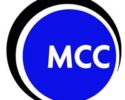Civic Action Plan focuses on community engagement
By Tim Engle
September 15, 2022
Student transcripts that show service-oriented co-curricular activities.
Annual events to spotlight nonprofit organizations near each campus.
Establishing a new office: the MCC Center for Community and Civic Engagement.
The launch of a nonpartisan MCC voter engagement campaign.
Recognizing grads’ community engagement at commencement.
Those are just some of the proposals found in Metropolitan Community College’s (MCC’s) new Civic Action Plan, an initiative to “foster a greater sense of engaged citizenship” among MCC students and employees.
MCC’s embrace of the Civic Action Plan — an effort led by the campus student engagement managers, with the document itself produced by them and other members of an employee task force — puts the college in good company. Now that the Missouri college has the plan in place, it has joined Campus Compact, a coalition of 1,000-plus colleges and universities committed to building democracy through civic education and community development.
Empowering the ‘difference-makers’
“Amidst the current climate of discord and divisiveness in our country, it is more important than ever for individuals and institutions to use the mechanisms at our disposal to uphold America’s democratic traditions and values,” Chancellor Kimberly Beatty writes in an introduction to MCC’s plan.
“ … We look forward to executing our plan and empowering our students, employees and other stakeholders with the resources and experience they need to become difference-makers in their communities, nation and world.”
The Civic Action Plan is “a public declaration of commitment to promote civic engagement at MCC by preparing students for lives of democratic citizenship,” says Christine Atkinson, student engagement manager at MCC-Longview.
A task force formed by the student engagement managers got to work in earnest in the fall of 2021, including seeking feedback from college shared governance groups. Atkinson notes that the Civic Action Plan aligns nicely with one of the four MCC Reimagined Strategic Plan themes (“Elevate Student, Employee and Community Engagement”) and intersects with several strategic plan organizational goals.
Examples of “community-engaged learning” or service learning can already be found at MCC, of course. MCC-Longview biology instructor Keet Kopecky, for instance, started involving students in the annual Project Blue River Rescue, a clean-up event, in 1988. (Kopecky is also a member of the Civic Action Plan task force.) When Longview was celebrating its 50th anniversary in 2019-20, the campus set a goal of undertaking 50 service projects.
And this year, students of MCC-Maple Woods history instructor Crystal Moore are visiting a Northland assisted living community two Saturdays a month, where they’ll conduct oral-history interviews of residents along with other activities. Students in Moore’s classes can earn extra credit for volunteering, and the experience can be a service project for members of Phi Theta Kappa (for which Moore is an advisor).
Five MCC commitments
As for what’s actually in the Civic Action Plan, the college makes five “commitments.” For each, the plan identifies the types of change required, specific actions to be taken (implementation), and finally assessment methods. The commitments:
- Metropolitan Community College empowers our students, faculty, staff and community partners to co-create mutually respectful partnerships in pursuit of a just, equitable and sustainable future for communities beyond the campus — nearby and around the world.
- We prepare our students for lives of engaged citizenship, with the motivation and capacity to deliberate, act and lead in pursuit of the public good.
- MCC embraces our responsibilities as a place-based institution, contributing to the health and strength of our communities — economically, socially, environmentally, educationally and politically.
- MCC harnesses the capacity of our institutions — through research, teaching, partnerships and institutional practice — to identify the prevailing social and economic inequalities that threaten our democratic future.
- MCC fosters an environment that consistently affirms the centrality of the public purposes of higher education by setting high expectations for members of the campus community to contribute to their achievement.
“The Civic Action Plan will help foster student engagement,” says Sue Gochis, MCC’s vice chancellor for instruction. “Now more than ever, we want to encourage our students to make real connections between their classes and their lives within their communities. The world needs responsible and engaged citizens.”
This article originally appeared here.



